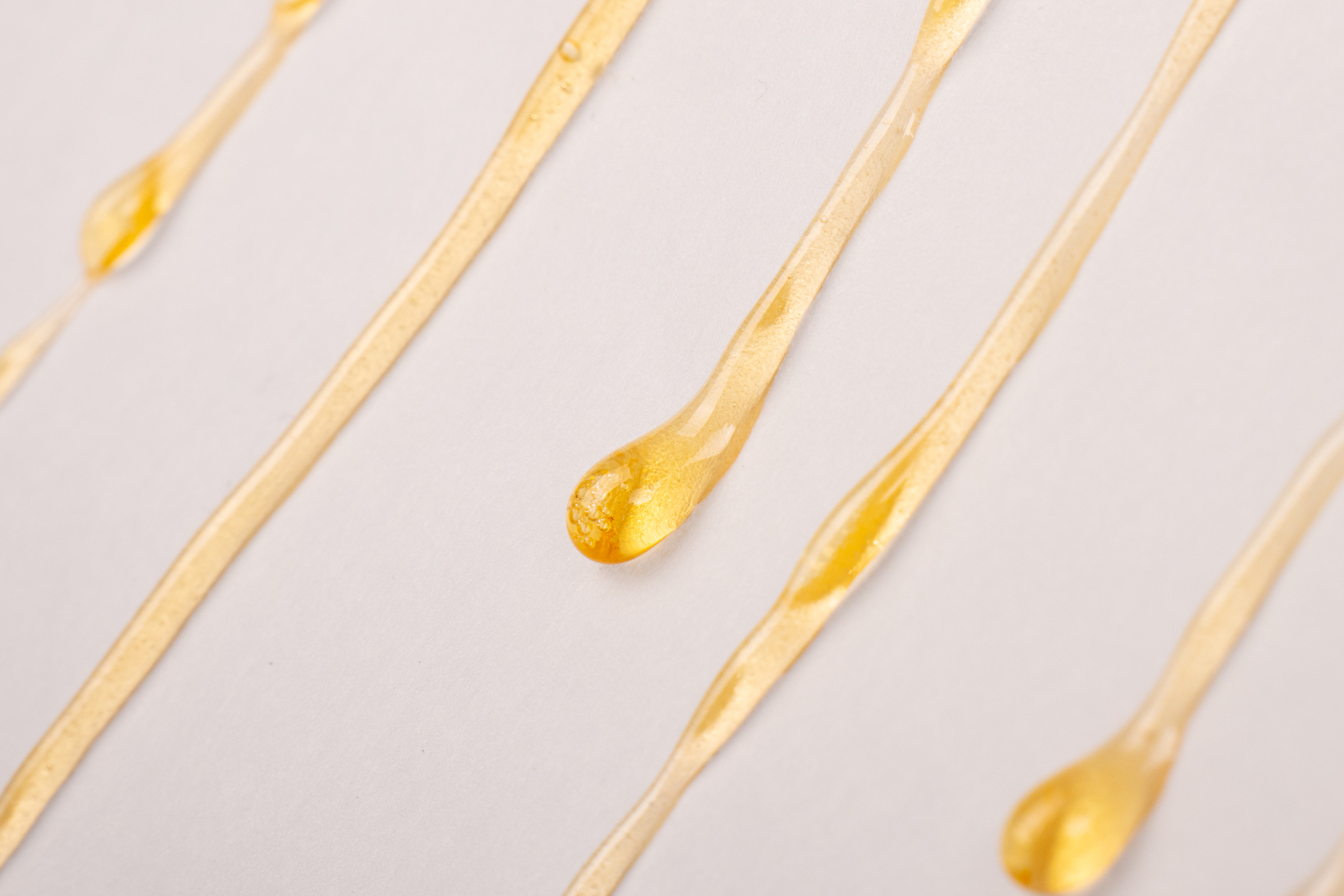Exploring "Terpy" and Cannabis Slang
If you’ve ever been part of a conversation in the cannabis community, you’ve probably heard someone drop the word terpy. It’s one of those terms that’s as fun to say as it is to unpack. At its core, terpy describes cannabis products—particularly concentrates or flower—that are rich in terpenes. These natural compounds not only give cannabis its signature scents and flavors but also play a huge role in how it affects your experience.
Let’s dive into what terpy really means, explore the connection to cannabis slang, and use some well-loved strains to showcase how the language of terpenes enriches the cannabis world.
What Does "Terpy" Mean?
The word terpy is rooted in the appreciation of terpenes—the compounds responsible for the distinct aromas and flavors in cannabis strains. For instance:
- A Lemon Haze concentrate might be described as super terpy because it bursts with the bright, citrusy scent of limonene.
- A Bubba Kush nug could earn the same compliment for its earthy, musky aroma, thanks to myrcene.
Calling something terpy is like saying it’s packed with character. It’s a way to recognize and celebrate cannabis that stands out for its rich, aromatic profile.
Cannabis Slang and Terpene Profiles
Cannabis slang isn’t just about sounding cool; it’s a language that connects enthusiasts. The words people use often tie back to the effects or flavors associated with certain terpenes. Below is a breakdown of popular slang terms and how they align with the unique qualities of different terpenes:
Limonene: The “Zesty High”
- Slang: Citrusy, zesty, lemony, bright
- Example Strains: Super Lemon Haze, Tangie, Lemon Skunk
- Description: When someone says a strain is lemony fresh, they’re probably describing one packed with limonene. This terpene is known for its uplifting, mood-boosting effects, making it popular for daytime use.
Myrcene: The “Chill Vibes”
- Slang: Dank, musky, earthy, heavy
- Example Strains: Granddaddy Purple, Blue Dream, Bubba Kush
- Description: Strains with high myrcene levels are often described as dank or musky. These strains tend to promote relaxation, and dank highlights the deep, earthy aroma.
Pinene: The “Forest Escape”
- Slang: Piney, fresh, woodsy, crisp
- Example Strains: Jack Herer, Northern Lights, Pineapple Express
- Description: If someone says a strain smells like a Christmas tree, it’s probably rich in pinene. This terpene has a sharp, woodsy scent and is often associated with increased focus and alertness.
Linalool: The “Spa Day”
- Slang: Floral, lavender, soft, calming
- Example Strains: Amnesia Haze, Kosher Kush, LA Confidential
- Description: Strains with high levels of linalool are often called floral or lavender-like. They’re known for their calming effects and are popular for stress relief.
Caryophyllene: The “Spicy Kick”
- Slang: Peppery, spicy, bold, tangy
- Example Strains: Girl Scout Cookies (GSC), Sour Diesel, Chemdawg
- Description: When someone says a strain has a bite or a peppery kick, they’re referring to caryophyllene. This terpene adds a spicy aroma and is unique because it interacts with CB2 receptors, potentially providing anti-inflammatory effects.
Strain Spotlights: The Language of Terpenes
Let’s take a closer look at a few popular strains, their terpene profiles, and how cannabis slang ties it all together:
Blue Dream (The All-Star)
- Terpene Highlights: Myrcene, Pinene, Caryophyllene
- Slang: Dreamy, smooth, mellow vibes
- Description: Known for its balanced high, Blue Dream is often called mellow and terpy. Its myrcene-forward profile gives it a sweet, berry aroma with earthy undertones, making it a favorite for both relaxation and focus.
Tangie (The Life of the Party)
- Terpene Highlights: Limonene, Myrcene, Caryophyllene
- Slang: Juicy, zesty, citrus bomb
- Description: Tangie is the definition of a terpy citrus explosion. With high limonene content, it’s the go-to for anyone seeking a burst of energy and euphoria. People might say, “That Tangie smells like a fruit stand!”
OG Kush (The Legend)
- Terpene Highlights: Myrcene, Caryophyllene, Limonene
- Slang: Dank, earthy, gassy, classic
- Description: OG Kush is often described as gassy or heavy. Its complex terpene profile makes it a cornerstone strain for many, balancing earthy myrcene with a touch of citrus from limonene.
Sour Diesel (The Energizer)
- Terpene Highlights: Caryophyllene, Limonene, Myrcene
- Slang: Diesely, sour, punchy, loud
- Description: Sour Diesel is a loud strain that hits your nose with pungent, fuel-like aromas. Its caryophyllene-limonene combo creates a spicy yet citrusy experience, perfect for getting your creative juices flowing.
Why "Terpy" Matters
Slang like terpy isn’t just about describing cannabis; it’s about celebrating it. It highlights the artistry and care that go into cultivating and crafting products that stand out. For consumers, identifying a product as terpy often means they’re about to enjoy a flavor-packed, aromatic experience that enhances both their taste buds and overall high.
How to Spot and Enjoy "Terpy" Cannabis
Now that we’ve unpacked what terpy means and explored the world of cannabis slang and terpenes, let’s dive deeper into how you can identify and enjoy the most terpy products. From understanding extraction methods to maximizing your experience, this section will arm you with everything you need to fully embrace the terpy side of cannabis.
Finding the Most "Terpy" Products
Not all cannabis is created equal when it comes to terpene content. Here’s how to spot products that deliver the terpy goodness you’re looking for:
Check the Lab Results
- Many dispensaries and brands now provide detailed lab testing results. Look for products that list terpene percentages. Anything with 2% or higher total terpene content is considered very terpy.
- Key Tip: Concentrates like live resin and terp sauce often have higher terpene levels compared to flower.
Look for Terms Like “Live” or “Fresh”
- Products labeled as live resin, live rosin, or fresh frozen are made using freshly harvested cannabis that’s frozen immediately to preserve terpenes. These are some of the most terpy options available.
- Key Tip: Fresh flower, when cured properly, can also be very terpy, but it loses terpenes over time if not stored correctly.
Use Your Nose
- A quick sniff test can reveal a lot about a product. A strong, vibrant aroma is often a good indicator of high terpene content. If you’re sampling flower or concentrates that smell muted or bland, they’re likely not very terpy.
- A quick sniff test can reveal a lot about a product. A strong, vibrant aroma is often a good indicator of high terpene content. If you’re sampling flower or concentrates that smell muted or bland, they’re likely not very terpy.
Go for Strains Known for Their Terpene Profiles
- Some strains are naturally more terpy than others. For instance, Tangie, Mimosa, and Strawberry Cough are citrus-forward strains with high limonene, while Death Star and Skywalker OG are renowned for their dank, earthy profiles rich in myrcene.
How Extraction Methods Impact Terpenes
Terpenes are delicate compounds that can be easily lost during the production process. Here’s a breakdown of how different extraction methods affect terpene retention:
Live Resin
- Why It’s Terpy: Made from fresh, flash-frozen cannabis, live resin preserves the full spectrum of terpenes, making it one of the most aromatic and flavorful options.
- Best For: Dabbers and vape users who want intense flavor.
CO₂ Extraction
- Why It’s Terpy: CO₂ extraction is designed to retain terpenes while removing unwanted plant material. It’s often used for vape cartridges and concentrates.
- Best For: Those seeking a clean, flavorful vaping experience.
Distillate
- Why It’s Less Terpy: Distillate focuses on isolating cannabinoids like THC, often at the expense of terpenes. Some products add terpenes back in, but they may not taste as natural.
- Best For: Consumers who prioritize potency over flavor.
Solventless Methods (Rosin)
- Why It’s Terpy: Rosin uses heat and pressure to extract cannabinoids and terpenes without solvents, retaining much of the strain’s natural profile.
- Best For: Purists who want an all-natural product.
Tips for Enjoying Terpy Products
Once you’ve got your hands on some terpy cannabis, here are a few tips to make the most of it:
Store Your Products Properly
- Terpenes degrade over time when exposed to light, heat, and air. Use airtight containers and store your cannabis in a cool, dark place. For concentrates, refrigeration is often ideal.
- Terpenes degrade over time when exposed to light, heat, and air. Use airtight containers and store your cannabis in a cool, dark place. For concentrates, refrigeration is often ideal.
Choose the Right Consumption Method
- Low-Temperature Dabs: For concentrates, using a lower temperature (around 315–450°F) ensures that terpenes don’t burn off, preserving flavor and aroma.
- Vaping: Dry herb vaporizers are great for flower, as they heat cannabis without combustion, allowing you to taste all the terpenes.
Pair with Complementary Foods or Drinks
- Enhance your experience by pairing terpy strains with flavors that complement their terpene profiles. For example:
- Pair citrusy Tangie with lemonade or a fruit salad.
- Enjoy earthy OG Kush with dark chocolate or coffee.
- Enhance your experience by pairing terpy strains with flavors that complement their terpene profiles. For example:
Start with a Clean Palate
- To fully appreciate the flavors of a terpy strain, avoid strong foods or drinks (like garlic or soda) beforehand. Think of it like a wine tasting—your taste buds matter!
Why "Terpy" is the Future
The cannabis industry is evolving, and consumers are becoming more sophisticated. While THC percentages once dominated the conversation, more people are realizing that terpenes play a crucial role in their experience. A terpy strain or concentrate isn’t just about getting high—it’s about savoring the aromas, flavors, and nuanced effects that only terpenes can provide.
Fun Fact: Some brands are even creating terpene-infused beverages, candies, and aromatherapy products, proving that the influence of terpenes extends far beyond cannabis itself.
A Quick Recap: What Makes a Product "Terpy"?
- High terpene content (2%+ is a good benchmark).
- Preserved through fresh harvesting and careful extraction.
- Vibrant aroma and bold flavor.
- Offers a full-spectrum experience that enhances effects through the entourage effect.
Whether you’re a fan of citrusy strains like Mimosa or prefer the gassy punch of Sour Diesel, exploring the world of terpy cannabis is a journey worth taking. Not only will it deepen your appreciation for quality cannabis, but it’ll also give you a fresh perspective on the power of terpenes.




One response to “Exploring “Terpy” and the World of Cannabis Slang”
[…] Terpene Terminology in Cannabis Culture : Terpy […]